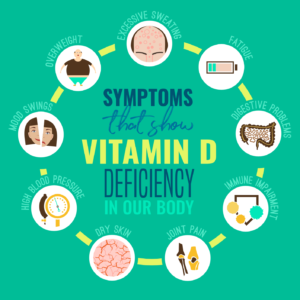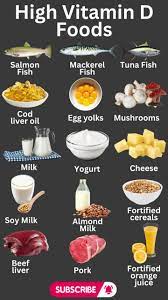|
Getting your Trinity Audio player ready...
|
Introduction
Winter not only brings snowflakes but also a subtle challenge to our winter wellness – The risk of vitamin D deficiency. Often termed the “sunshine vitamin,” vitamin D plays a crucial role in various bodily functions, contributing to our overall health. Let’s delve into the shadows of winter and illuminate our understanding of the symptoms of vitamin D deficiency and the vibrant fruits that can be your sunshine in the cold season.
Why Vitamin D is Vital- Winter Wellness
Vitamin D, often overlooked, is a powerhouse essential for bone health, immune function, and mood regulation. Imagine it as the conductor orchestrating the harmony within your body. This vitamin ensures calcium absorption, fortifying your bones and teeth. Moreover, it acts as a guardian for your immune system, shielding you from winter’s notorious colds and flu.
Read Also: The Beauty in Health: Crafting a Regimen for Gorgeous, Healthy Hair – 13 Tips for Luscious Locks!
The Stealthy Vitamin D Deficiency
In the hustle of daily life, we often miss the whispers our bodies convey. Vitamin D deficiency is cunning, presenting itself in subtle ways. The symptoms may masquerade as common winter blues, making it imperative to recognize the silent cries for the sunshine vitamin.
Recognizing the Symptoms
Fatigue, muscle pain, and mood swings are common indicators of vitamin D deficiency. Have you found yourself feeling more tired than usual? Is the winter gloom affecting your mood? These subtle signs might be your body’s way of signaling a vitamin D deficit. Keep a keen eye on these whispers and act promptly.
Lack of Sunlight: A Culprit
As winter descends, the days grow shorter, and the sunlight becomes a fleeting visitor. This lack of exposure can be a major contributor to vitamin D deficiency. Our bodies synthesize this crucial vitamin when exposed to sunlight, and the reduced daylight hours during winter can hinder this natural process.
Winter Blues and Vitamin D Connection
Ever wondered why winter is associated with a dip in mood? Seasonal Affective Disorder (SAD), often linked to vitamin D deficiency, might be the answer. The reduced sunlight exposure disrupts our circadian rhythm, leading to mood swings and a sense of lethargy. It’s like our body’s way of telling us it misses the sun.
Top 5 Vitamin D-Rich Fruits
Now, let’s turn our attention to the bright side of winter – the fruits that can infuse your days with vitamin D goodness. These fruits not only add a burst of flavor to your winter diet but also contribute to your overall well-being.
1. Sun-Kissed Oranges
Oranges, with their vibrant color and zesty flavor, are not just a treat for your taste buds but also a vitamin D powerhouse. Packed with nutrients, they can be your daily dose of sunshine, even on the gloomiest winter day.
2. Mighty Mushrooms
When it comes to vitamin D, mushrooms are nature’s hidden treasure. Exposing them to sunlight enhances their vitamin D content. Incorporate mushrooms into your winter soups and stews for a delightful and nutritious twist.
3. Hearty Avocados
Creamy and rich, avocados not only elevate your winter salads but also boost your vitamin D levels. Their versatility makes them a delicious addition to various dishes, ensuring you get the nutrients your body craves.
4. Joyful Bananas
Bananas are more than just a convenient snack; they are a source of vitamin D goodness. Easy to incorporate into your daily routine, these yellow delights provide a natural energy boost, keeping your winter blues at bay.
5. Tropical Passion: Pineapple
Bring a touch of the tropics to your winter with pineapple. This juicy fruit not only transports you to sunnier realms but also provides a healthy dose of vitamin D. Add it to your fruit salads or enjoy it as a refreshing snack.
Sunshine on Your Plate: Benefits of Fruits
Embracing these vitamin D-rich fruits goes beyond meeting your nutritional needs. The benefits extend to boosting your immune system, enhancing skin health, and uplifting your mood. Consider them as your edible sunshine, bringing warmth to the chilly winter days.
Incorporating Fruits into Your Winter Diet
Now that we’ve unveiled the vitamin D heroes, let’s explore practical ways to incorporate them into your daily meals. From smoothies to snacks, there are endless possibilities to savor the goodness of these fruits and make them a delightful part of your winter routine.
Myth Busters: Common Misconceptions
Let’s debunk some common myths surrounding vitamin D. It’s time to separate fact from fiction and ensure you make informed choices for your winter well-being.
1. Myth: Only Sunlight is Enough
Reality: While sunlight is a primary source of vitamin D, it’s not the only one. Including vitamin D-rich foods complements your sun exposure, ensuring you meet your daily requirements even during the winter months.
2. Myth: Supplements Are Always Better
Reality: While supplements can be beneficial, they should not replace a balanced diet. Whole foods provide a spectrum of nutrients that supplements might lack. It’s about achieving harmony between natural sources and supplements.
Conclusion
As winter wraps its cold arms around us, let’s not succumb to the shadows of vitamin D deficiency. By recognizing the symptoms and embracing the vitamin D-rich fruits, we can turn the season into a celebration of well-being. Remember, a little sunshine on your plate can go a long way in keeping the winter blues at bay.
Are supplements a good alternative to sunlight for vitamin D?
Supplements can be beneficial, but it's essential to balance them with natural sources. Sunlight and vitamin D-rich foods offer a holistic approach to maintaining optimal levels.
Can too much vitamin D be harmful?
Yes, excessive vitamin D intake can have adverse effects. It's crucial to follow recommended daily allowances and consult a healthcare professional if considering supplements.
Are there vegan-friendly sources of vitamin D?
Absolutely. Mushrooms, fortified plant-based milk, and certain cereals are excellent vegan-friendly sources of vitamin D.
What role does vitamin D play in overall well-being?
Vitamin D is vital for bone health, immune function, and mood regulation. It acts as a supportive conductor, harmonizing various bodily functions to promote overall well-being.

